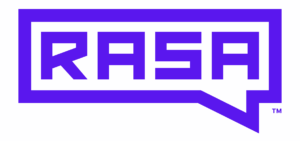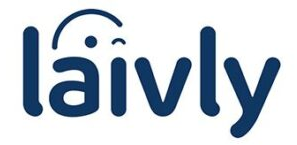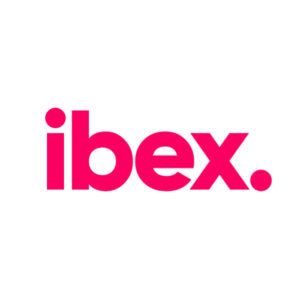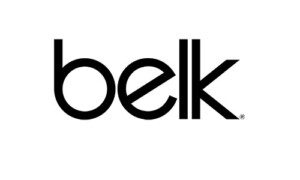In business, emotional intelligence has emerged as a foundational skill for both leaders and employees. Emotional intelligence, often referred to as EQ, encompasses the ability to recognize, understand, manage, and effectively use one’s own emotions, as well as the emotions of others.
This skill is a critical component of a well-rounded well-being strategy, as it empowers individuals to navigate stress, build resilience, and foster healthy relationships – both personally and professionally.
Value and Work Efficiency
When employees feel valued and supported, and their well-being is prioritized, they are more likely to remain engaged and committed to their roles. This translates to reduced turnover rates, saving organizations both time and resources that would otherwise be spent on recruitment and onboarding. A well-balanced workforce is a productive workforce. Employees who are physically and mentally well are better equipped to focus on their tasks, make sound decisions, and collaborate effectively with colleagues.
In their 2022 global Work Trend Index, Microsoft found that 53% of over 31,000 global employees said they’re more likely to prioritize health and well-being over work than before the pandemic [Forbes].
By investing in well-being, organizations create an environment where employees thrive, leading to improved job satisfaction and enhanced performance.
The Path to Emotional Intelligence
Cultivating emotional intelligence requires intentional learning and development strategies that focus on mindfulness and self-awareness. As CX leaders, fostering these skills in your workforce can drive substantial well-being improvements.
Here are some effective strategies:
- Mindfulness Practices: Integrate mindfulness practices into the workplace. Encourage short mindfulness breaks, meditation sessions, or even dedicated spaces for relaxation. Mindfulness enhances self-awareness and self-regulation, leading to reduced stress and improved decision-making.
- Emotional Literacy Training: Offer training sessions that teach employees to identify and label emotions accurately. Emotional literacy enhances empathy and communication skills, creating a more emotionally intelligent workforce.
- Feedback Culture: Promote a culture of constructive feedback. Encourage employees to give and receive feedback with empathy and openness. This practice fosters self-regulation and social skills while promoting continuous growth.
Leveraging AI Technology to Amplify Well-Being Strategies
The integration of AI technology into well-being strategies offers unprecedented opportunities for personalization and effectiveness. AI-powered platforms can analyze employee data, behavior patterns, and emotional responses to offer tailored interventions and support. Here’s how AI technology complements emotional intelligence and mindfulness strategies:
- Personalized Well-Being Interventions: AI algorithms can analyze employee data to recommend personalized well-being interventions. This could include mindfulness exercises, stress-reduction techniques, or resources for developing emotional intelligence.
- Real-Time Feedback: AI-driven tools can provide real-time feedback on emotional states and stress levels. This enables employees to become more self-aware and take proactive steps to manage their emotions.
- Learning Enhancements: AI can adapt learning materials based on individual preferences and emotional responses, enhancing the effectiveness of emotional intelligence training programs.
Shaping a Well-Being-Centric Future
As leaders, your role in shaping a well-being-centric corporate culture is pivotal. By intentionally cultivating emotional intelligence through mindfulness practices and leveraging the power of dynamic neuroinsights and AI technology, you’re equipping your workforce with essential skills to thrive. Empathy-driven leaders, emotionally intelligent employees, and AI-enhanced strategies collectively contribute to a resilient, empowered, and thriving corporate environment.
This approach transcends traditional isolated initiatives, weaving well-being into the fabric of company culture and systems. From onboarding processes that instill well-being values to ongoing training programs that develop emotional intelligence and stress management skills, holistic system design ensures that well-being is ingrained at every stage of an employee’s journey. By offering ongoing education, resources, and a supportive environment, organizations empower employees to consistently prioritize their well-being. This not only enhances individual lives but also contributes to a harmonious and engaged workforce that drives sustainable business success.

Guest blog post written by IntouchCX.
Join their panel at Customer Response Summit (CRS) Nashville on Wednesday, September 20th at 2:15pm, led by Chris Harrison SVP, Well-Being and Organizational Development at IntouchCX
































































































 TELUS Digital
TELUS Digital ibex delivers innovative BPO, smart digital marketing, online acquisition technology, and end-to-end customer engagement solutions to help companies acquire, engage and retain customers. ibex leverages its diverse global team and industry-leading technology, including its AI-powered ibex Wave iX solutions suite, to drive superior CX for top brands across retail, e-commerce, healthcare, fintech, utilities and logistics.
ibex delivers innovative BPO, smart digital marketing, online acquisition technology, and end-to-end customer engagement solutions to help companies acquire, engage and retain customers. ibex leverages its diverse global team and industry-leading technology, including its AI-powered ibex Wave iX solutions suite, to drive superior CX for top brands across retail, e-commerce, healthcare, fintech, utilities and logistics.






















 Trista Miller
Trista Miller



























